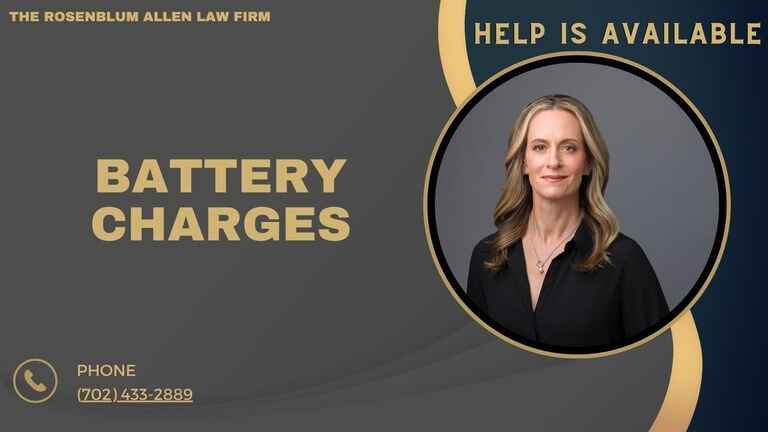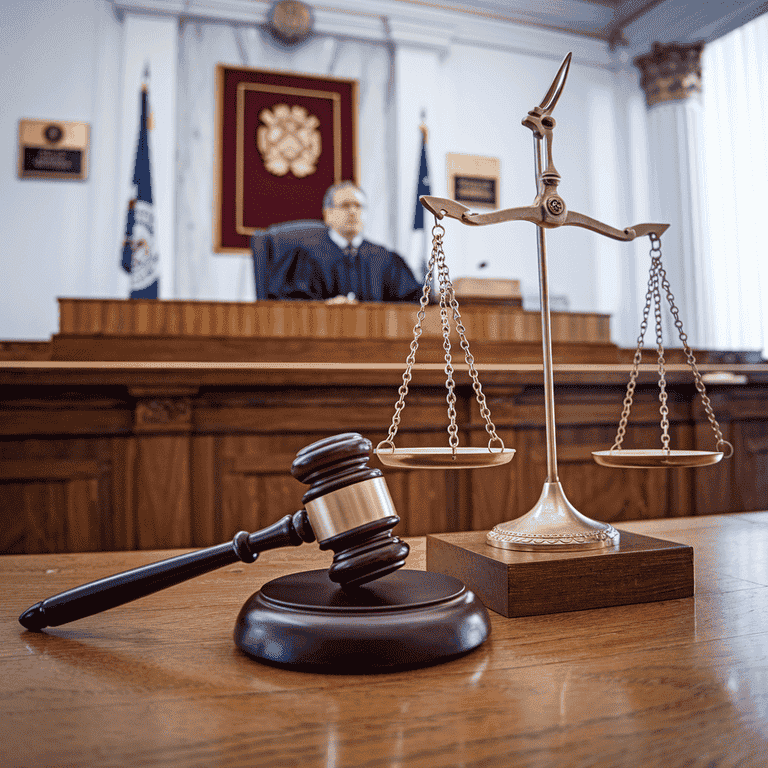What are Battery Charges?
Definition of Battery Charges
Battery charges refer to legal accusations related to the intentional and unlawful use of force against another person. It involves causing physical harm or offensive contact. Unlike assault, which is the threat of harm, battery involves actual physical interaction.

Types of Battery Charges
Battery charges can vary based on the nature and severity of the incident. Here are some common types:
- Simple Battery: Involves minor injuries or offensive contact. It often leads to misdemeanor charges.
- Aggravated Battery: Involves serious bodily harm, the use of a weapon, or battery against a vulnerable person. This usually results in felony charges.
- Domestic Battery: Occurs between individuals in a domestic relationship, such as spouses or partners. It can lead to severe penalties due to the nature of the relationship.
Difference Between Battery and Assault
Understanding the distinction between battery and assault is essential. Here’s a simple comparison:
| Aspect | Battery | Assault |
|---|---|---|
| Definition | Actual physical contact or harm | Threat of harm or fear of imminent harm |
| Legal Standing | Considered a completed act | Considered an attempt to cause harm |
| Intent | Intent to cause harm or offensive contact | Intent to create fear or apprehension |
| Charge Type | Generally a battery charge | Generally an assault charge |
Understanding these differences helps individuals better grasp their legal situations and potential outcomes.
Legal Consequences of Battery Charges
Potential Criminal Penalties
The consequences of battery charges can be serious and often depend on the nature of the offense:
- Simple Battery: Usually classified as a misdemeanor, penalties may include:
- Fines (up to $1,000)
- Up to one year in jail
- Aggravated Battery: Often a felony, penalties may include:
- Fines (can exceed $10,000)
- Multiple years in prison, sometimes exceeding ten years
Civil Liabilities
In addition to criminal penalties, individuals may also face civil liabilities. This can result in:
- Damages: Compensation for medical bills, pain and suffering, or emotional distress.
- Restraining Orders: Victims may seek orders of protection, limiting contact with the accused.
Factors Influencing Severity of Charges
Several factors can affect how battery charges are pursued:
- Severity of Injuries: More severe injuries typically lead to harsher charges.
- Presence of Weapons: Using a weapon during the incident can escalate charges.
- Victim’s Status: Victims who are vulnerable, such as children or the elderly, may lead to enhanced penalties.
- Defendant’s Criminal History: Previous convictions can influence the outcome and severity of charges.
Understanding these legal consequences can help individuals navigate their situations more effectively.

Common Defenses Against Battery Charges
Self-Defense
One of the most common defenses is self-defense. If an individual can prove they acted to protect themselves from immediate harm, it may lead to a dismissal of charges. Key points include:
- Reasonableness: The response must be proportionate to the threat faced.
- Immediacy: The threat must be immediate and unavoidable.
Defense of Others
Similar to self-defense, individuals may claim they acted to protect another person. This defense requires:
- Imminent Threat: Proof that the person they defended was under immediate threat of harm.
- Reasonable Response: The level of force used must be reasonable in relation to the threat posed.
Consent
In some cases, consent may be a valid defense. If both parties agreed to the contact (such as in certain sports), it may negate the battery charge.
Accidental Battery
If the contact was accidental and without intent to harm, it may serve as a defense. For instance, if someone accidentally bumps into another person without any malice, they may not be liable for battery.
These defenses highlight the importance of understanding the context and circumstances surrounding battery charges.
The Legal Process Involving Battery Charges
Arrest and Booking
When someone is accused of battery, the process often begins with an arrest. This can be a confusing and stressful time. Here’s a brief overview of what to expect:
- Police Response: Officers respond to the scene based on reports of the incident. They assess the situation and may take someone into custody.
- Booking: Once arrested, the individual goes through booking. This includes:
- Personal information is recorded.
- Photographs and fingerprints are taken.
- Charges are formally listed.
Initial Court Appearance
After booking, the accused will have an initial court appearance, sometimes called an arraignment. During this time:
- Charges Read: The judge will read the charges.
- Plea Entered: The accused will enter a plea (guilty, not guilty, or no contest).
- Bail Consideration: The judge will decide if bail is appropriate and the amount, if applicable.
Preliminary Hearing
If the plea is not guilty, a preliminary hearing may take place. This hearing is important for several reasons:
- Evidence Presentation: The prosecution presents evidence to show there is enough reason to proceed with charges.
- Defense Opportunity: The defense can challenge the evidence and argue for dismissal of charges.
- Decision: The judge will determine if the case moves forward to trial based on the evidence presented.
Plea Bargaining
Many battery cases are resolved through plea bargaining. This process allows both sides to negotiate a deal. Here’s how it typically works:
- Reduced Charges: The defendant may agree to plead guilty to lesser charges.
- Lesser Sentences: In exchange, they may receive a lighter sentence or alternative penalties, such as probation.
- Benefits: This can save time and resources for both the court and the accused.
Trial Process
If no agreement is reached through plea bargaining, the case goes to trial. Here’s what happens:
- Jury Selection: A jury is selected if the defendant chooses a jury trial.
- Opening Statements: Both sides present their opening statements, outlining their cases.
- Witness Testimony: Witnesses are called to testify, providing evidence for the prosecution and defense.
- Closing Arguments: Each side summarizes their arguments before the jury deliberates.
At the end of the trial, the jury delivers a verdict. If found guilty, sentencing will follow, where the judge determines the appropriate punishment.

Impact of Battery Charges on Personal Life
Employment Consequences
Facing battery charges can have significant effects on a person’s career. Here are some potential impacts:
- Job Loss: Many employers conduct background checks. A battery charge could lead to termination.
- Future Employment: It may become challenging to find new employment, especially in sensitive fields such as education or healthcare.
- Professional Licenses: Certain professions require licenses that may be revoked or denied due to battery charges.
Reputation and Relationships
The social implications of battery charges can be severe:
- Social Stigma: Being charged with a crime can lead to public scrutiny. Friends and family may react differently.
- Strained Relationships: Relationships with partners, friends, and family may suffer due to the stress and shame associated with charges.
Mental Health Effects
The emotional toll of facing battery charges should not be overlooked:
- Stress and Anxiety: The uncertainty of legal proceedings can lead to significant stress.
- Depression: The weight of the charges and their impact on one’s life may lead to feelings of hopelessness.
- Need for Support: It’s essential to seek support, whether through counseling or support groups, to navigate these challenges.
Steps to Take if Charged with Battery
Hiring a Criminal Defense Attorney
One of the most important steps after being charged with battery is to hire a knowledgeable criminal defense attorney. Here’s why:
- Legal Knowledge: An attorney understands the law and can provide valuable guidance.
- Representation: They represent you in court, helping to present your case effectively.
- Negotiation Skills: An experienced lawyer can negotiate plea deals or reduced charges.
Gathering Evidence
Building a solid defense often requires collecting evidence. Here’s what to keep in mind:
- Witness Statements: Collect statements from anyone who witnessed the incident.
- Photos or Videos: Any visual evidence can help support your case.
- Medical Records: If injuries occurred, obtain medical records to demonstrate the severity.
Understanding Your Rights
It’s important to know your rights when facing battery charges:
- Right to Remain Silent: You do not have to speak to law enforcement without an attorney present.
- Right to a Fair Trial: You have the right to a fair trial by an impartial jury.
- Right to Legal Counsel: You have the right to have an attorney represent you throughout the process.
Preparing for Court
Preparation is key to facing battery charges confidently:
- Practice Your Testimony: If you plan to testify, practice what you will say.
- Understand Courtroom Procedures: Familiarize yourself with what will happen in court.
- Dress Appropriately: First impressions matter, so dress professionally for court appearances.

Resources for Individuals Facing Battery Charges
Legal Aid Organizations
Many individuals may need financial assistance for legal representation. Here are some resources:
- Legal Aid Societies: Nonprofit organizations that provide free or low-cost legal services.
- Pro Bono Services: Some attorneys offer pro bono services for individuals who cannot afford representation.
Counseling Services
Facing charges can be emotionally taxing. Counseling services can help:
- Therapists: Professionals can provide support and coping strategies.
- Support Groups: Connecting with others in similar situations can help individuals feel less alone.
Support Groups
Support groups for individuals facing legal issues can offer a sense of community. These groups provide:
- Shared Experiences: Members share their stories and coping strategies.
- Encouragement: Support groups can foster a positive environment for healing and personal growth.

Breaking It Down for You
Understanding battery charges and their implications is essential. The legal process can be daunting, but knowledge empowers individuals to navigate their situations effectively. If you or someone you know is facing battery charges, seeking legal counsel and support is vital. Remember, you are not alone in this journey, and there are resources available to help.

Frequently Asked Questions
What is the difference between battery and assault?
Battery involves the actual physical act of harming someone, while assault refers to the threat or attempt to cause harm. Assault can occur without any physical contact.
Can battery charges be dropped?
Yes, battery charges can be dropped if there is insufficient evidence, a lack of cooperation from the victim, or if the prosecution believes they cannot prove the case beyond a reasonable doubt.
What are the potential penalties for battery charges?
Penalties for battery can vary depending on the severity of the offense and whether it is classified as a misdemeanor or felony. Possible penalties include fines, probation, community service, or imprisonment.
What should I do if I am falsely accused of battery?
If you are falsely accused, it’s important to gather evidence that supports your innocence. Consult with a criminal defense attorney who can help you build your case and protect your rights.
How long does a battery charge stay on my record?
The length of time a battery charge remains on your criminal record depends on the laws in your state. In many cases, it can stay on your record indefinitely unless you pursue expungement.
Can I represent myself in a battery case?
While it is possible to represent yourself, it is not advisable due to the complexities of the legal system. Having an experienced attorney can greatly improve your chances of a favorable outcome.
What is the role of a victim in a battery case?
The victim plays a crucial role in a battery case as they can provide testimony and evidence. However, their cooperation is not always necessary for the prosecution to proceed with charges.
Are there alternatives to jail time for battery offenders?
Yes, alternatives to jail time may include probation, community service, anger management programs, or restorative justice programs, especially for first-time offenders or less severe cases.

Additional Resources for You
Our lead attorney, Molly Rosenblum, Esq, has created a number of invaluable resources to assist you during challenging times. Here are some of the most pertinent:
- Criminal Defense Attorneys: A team of dedicated legal professionals ready to help you build a strong defense strategy.
- Felonies in Nevada: A comprehensive guide to understanding felony charges leveled in Nevada.
- Attorneys Answer Your Questions About Miranda Rights: A resource where you can have your questions about Miranda rights answered by experienced attorneys.
- Firearms Defense Lawyers: Legal aid for those facing firearms-related charges.
- Theft Defense Lawyers: Get legal help if you have been charged with theft.
- Winning Felony Cases in Nevada: Insightful strategies and tips on how to win felony cases in Nevada.
- Drug Possession Defense Lawyer: Effective legal advice for anyone facing drug possession charges.
- Marijuana Possession Questions? We’ve Got Answers.: Have your concerns and questions about marijuana possession laws in Las Vegas addressed.
- Juvenile Defense Lawyers: Legal practitioners specialized in representing minors in the court system.
- Juvenile Charges: Get Legal Advice: Seek advice on how to handle juvenile charges from trusted legal professionals.

Offsite Resources for You
Here are some resources that might be helpful for someone interested in understanding more about battery charges in Las Vegas:
Nevada Revised Statutes on Battery: This is the legal document that defines what constitutes battery in the state of Nevada.
Clark County District Attorney: The official site of the Clark County District Attorney’s office, which prosecutes crimes in Las Vegas.
Las Vegas Metropolitan Police Department: The official site of the police department in Las Vegas, where incident reports related to battery charges would be filed.
Nevada Legal Services: A non-profit organization providing legal services to low-income residents of Nevada.
Nevada State Bar: The official site of the state bar, where you can find resources to help you understand your legal rights and locate a lawyer.
Nevada Legal Aid: A non-profit organization that provides free legal aid to low-income individuals and families in Nevada.
Nevada Courts: The official site of the Nevada court system, where you can find information about the legal process for battery charges.

A Special Message from Our Lead Attorney

Molly Rosenblum
Dear Reader,
Thank you so much for taking the time to review the resources I’ve put together. I understand that dealing with legal matters can be daunting, and I hope these materials have provided valuable insights.
Please remember, you don’t have to navigate these waters alone. Please contact me and my team at The Rosenblum Allen Law Firm for a free consultation. We can discuss your case in detail, answer any questions you may have, and determine the best course of action moving forward.
You can reach us at (702) 433-2889. We’re here to help you.
Best regards,
Molly Rosenblum, Esq.




